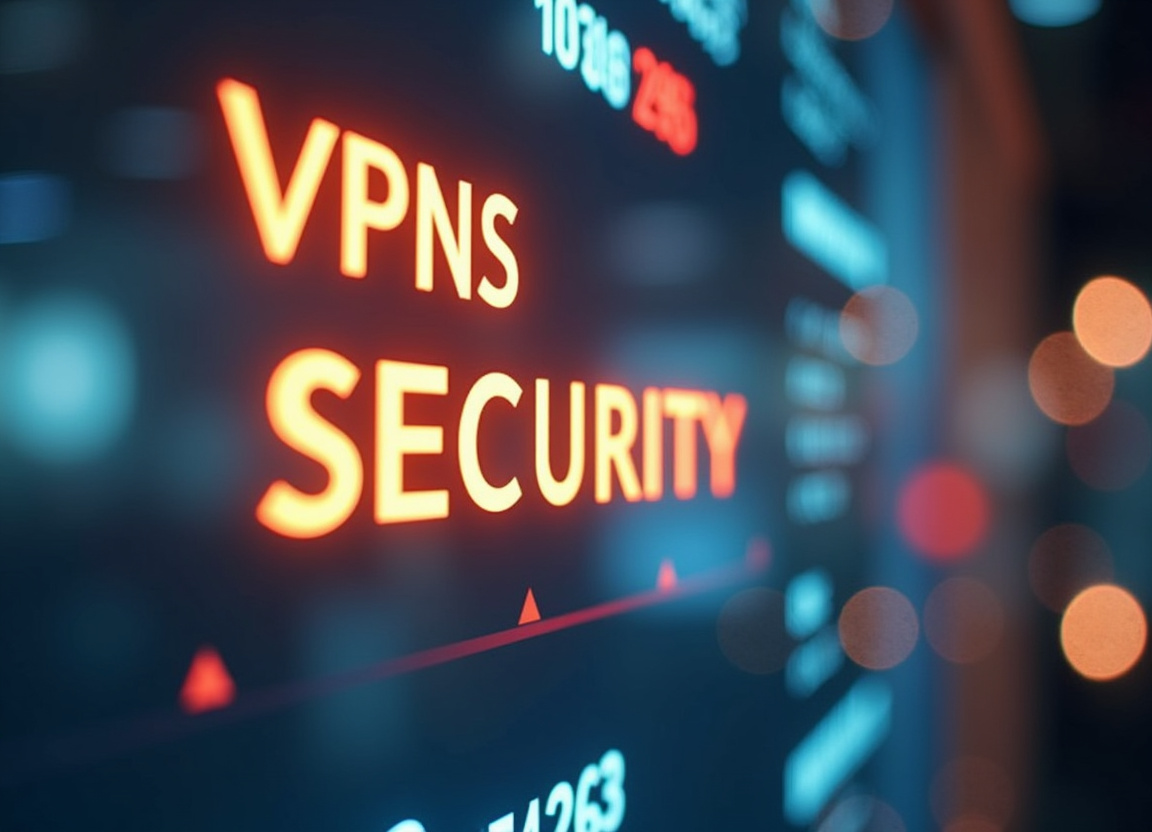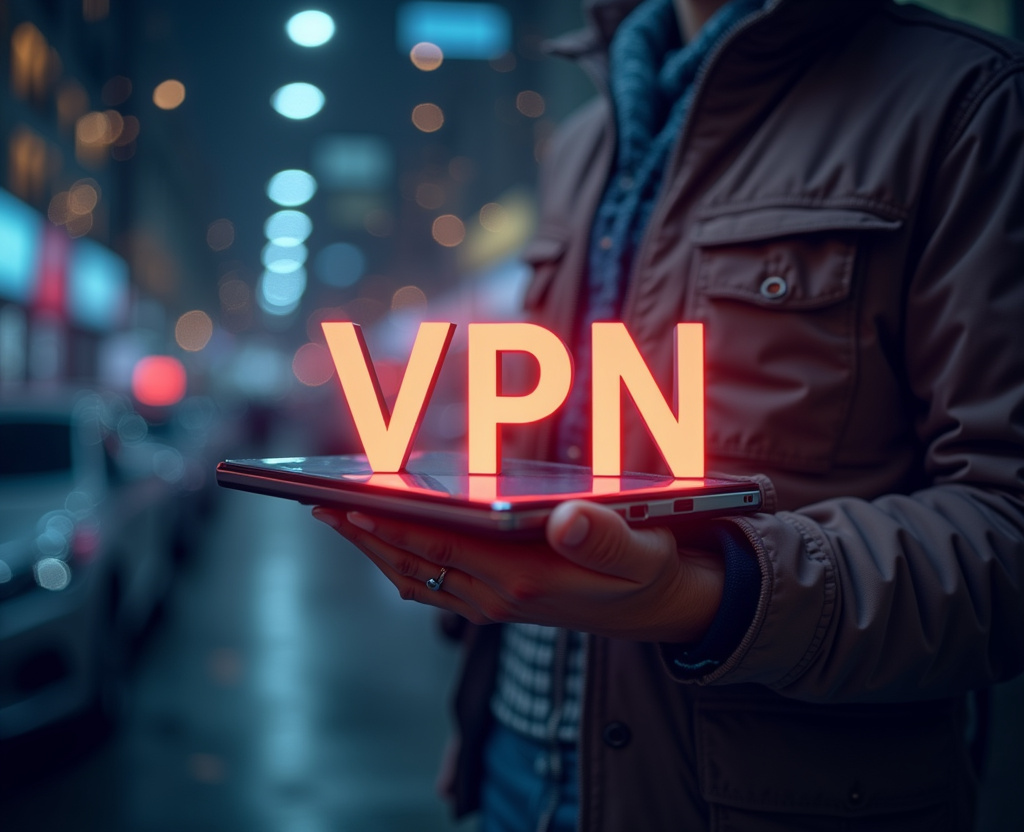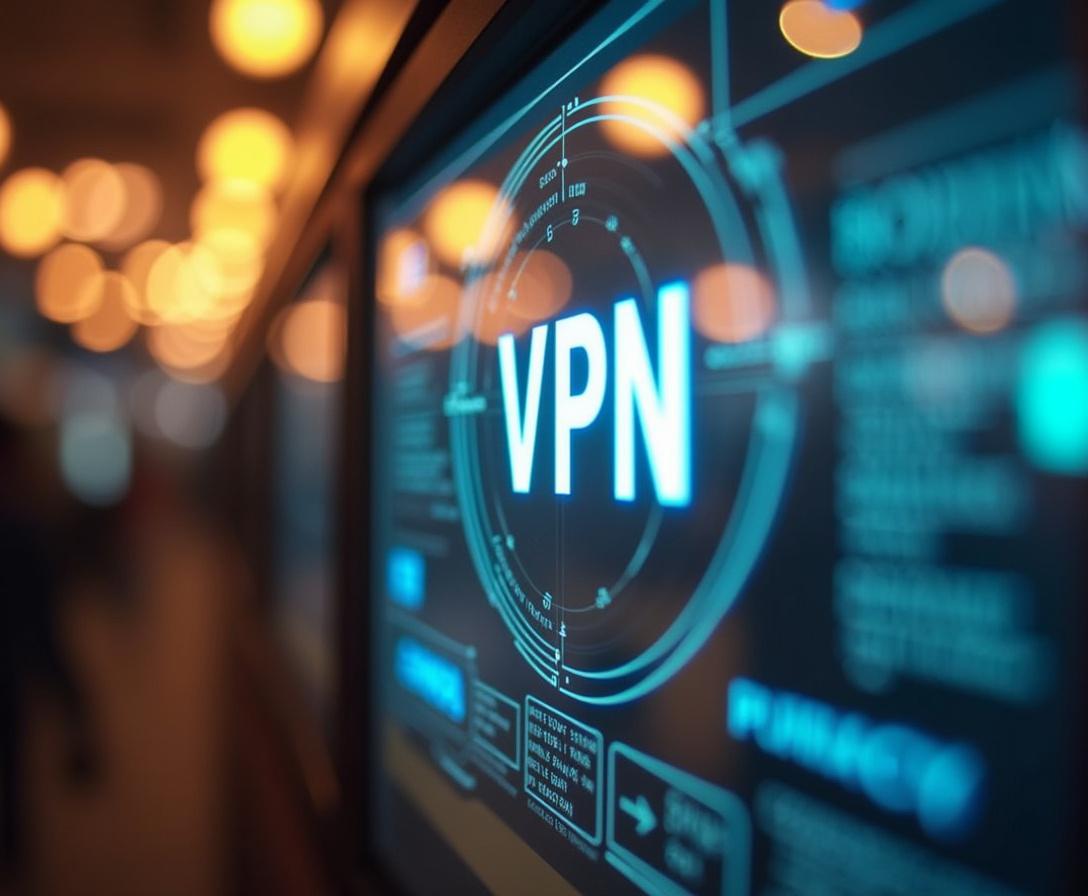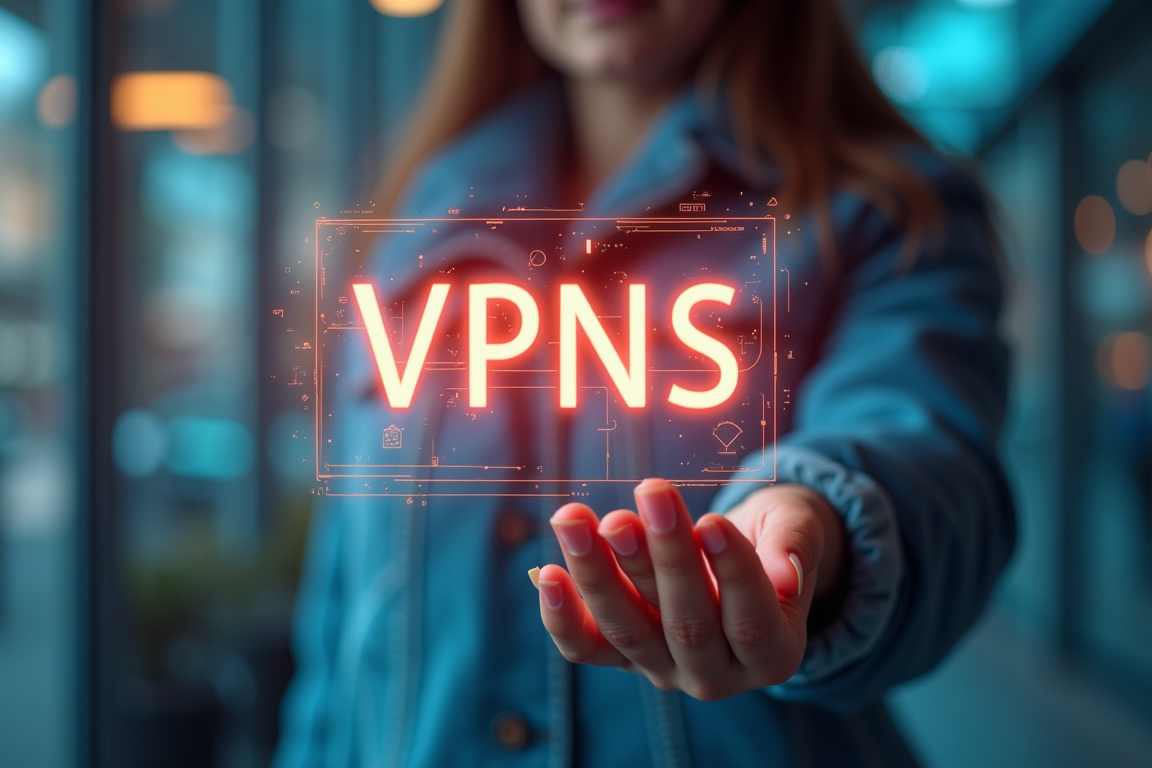VPNs for In-Store Analytics: Securing Customer Behavior Data

Table of Contents
VPNs for In-Store Analytics: Securing Customer Behavior Data
In today's hyper-competitive retail environment, understanding customer behavior is no longer a "nice-to-have" but a critical imperative for survival and success. In-store analytics, the practice of collecting and analyzing data about customer movements, interactions, and purchasing patterns within a physical retail space, has emerged as a powerful tool for retailers seeking to optimize their operations, personalize the customer experience, and ultimately drive sales. By leveraging technologies like Wi-Fi tracking, video analytics, beacon technology, and mobile app integration, retailers can gain granular insights into how customers navigate their stores, which products they interact with, how long they spend in different areas, and what influences their purchasing decisions.
This data can then be used to inform a wide range of strategic decisions, from optimizing store layout and product placement to personalizing marketing campaigns and improving staff allocation. However, the increasing sophistication and pervasiveness of in-store analytics raise significant concerns about customer privacy and data security. The collection and analysis of sensitive customer data, such as location information, browsing history, and purchase details, can expose retailers to potential security breaches, regulatory scrutiny, and reputational damage.
Customers are increasingly aware of the value of their personal data and are demanding greater transparency and control over how it is collected and used. Ignoring these concerns can erode customer trust, damage brand loyalty, and lead to legal liabilities. To address these challenges, retailers are turning to Virtual Private Networks (VPNs) as a critical component of their in-store analytics infrastructure.
A VPN creates a secure, encrypted connection between the various data collection points within the store (e.g., Wi-Fi routers, security cameras, point-of-sale systems) and a centralized analytics server, effectively shielding customer data from unauthorized access and interception. The integration of VPN technology into in-store analytics systems provides a multi-layered approach to data security. The VPN encrypts the data as it travels across the network, making it unreadable to hackers or eavesdroppers who may attempt to intercept it.
This encryption ensures that even if the network is compromised, the customer data remains protected. Furthermore, VPNs can also mask the IP addresses of the data collection devices, making it more difficult to identify and track individual customers. This added layer of anonymity enhances customer privacy and reduces the risk of data being linked to specific individuals.
Using 'in-store analytics VPN' solutions enables retailers to gather 'business insights' without compromising 'behavior protection'. The deployment of a 'VPN for retail' provides a secure and reliable way to transmit data, ensuring 'customer data security' throughout the process. The strategic use of a VPN transforms a potential liability into a valuable asset, building customer trust and fostering long-term loyalty.
In addition to enhancing security and privacy, VPNs can also improve the reliability and performance of in-store analytics systems. By providing a dedicated and encrypted connection, VPNs can reduce the risk of network congestion and interference, ensuring that data is transmitted quickly and efficiently. This is particularly important for retailers who rely on real-time data analytics to make critical business decisions as a 'VPN for retail' enhances data flow.
Unveiling the Functionality and Core Benefits of VPNs in Retail Analytics
The cornerstone of a VPN's security effectiveness lies in its robust encryption capabilities, transforming readable, sensitive data into an unreadable, scrambled format, comprehensible only to authorized entities possessing the decryption key. This fundamental process is paramount for safeguarding the confidentiality of customer information, which may encompass a wide array of personal details, ranging from browsing history and online behaviors to precise location data and highly sensitive financial transactions. When customers connect to in-store Wi-Fi networks, whether provided freely by the retailer or accessed through paid services, their data is inherently vulnerable to interception by malicious actors lurking on the same network.
These cybercriminals can employ readily available tools to passively eavesdrop on network traffic, capturing unencrypted data and potentially compromising customer accounts or even stealing identities. A VPN effectively mitigates this risk by creating an encrypted tunnel – an impervious pathway through which all data traffic is routed. This tunnel ensures that even if a hacker manages to intercept data packets, they will be faced with an indecipherable jumble of characters, rendering the information worthless.
The strength of this protection hinges on the implementation of robust encryption protocols, such as Advanced Encryption Standard (AES) with a 256-bit key (AES-256). AES-256 is widely regarded as one of the most secure encryption algorithms available, offering a virtually impenetrable barrier against brute-force attacks. The computational power required to break AES-256 encryption far exceeds the capabilities of even the most sophisticated attackers, making it the gold standard for data protection.
In addition to encryption, high-quality VPNs offer a range of supplementary security features designed to further enhance user privacy and protect against various threats. One such feature is IP address masking, which effectively conceals the user's true IP address and replaces it with the IP address of the VPN server. This makes it significantly more difficult for websites, tracking services, and other online entities to identify and track individual users.
IP address masking is a crucial component of 'behavior protection' as it severs the link between online activities and a specific individual. Furthermore, many VPNs incorporate a "kill switch" – a fail-safe mechanism that automatically terminates the internet connection if the VPN connection drops unexpectedly. This prevents unencrypted data from being transmitted over the public internet, ensuring that sensitive information is never exposed.
The choice of VPN server location can also impact security and privacy. By connecting to a server in a different country, users can effectively bypass geo-restrictions and access content that may be blocked in their region. However, it is important to choose a server location carefully, as different countries have varying data privacy laws.
The use of a secure 'in-store analytics VPN' is essential for maintaining 'customer data security' while gathering 'business insights'. A reliable 'VPN for retail' ensures that all data transmitted from the store's analytics systems, including customer behavior data, is encrypted and protected from unauthorized access. The overall effectiveness of a VPN solution is intricately linked to its underlying architecture and the rigorousness of the security practices upheld by the VPN provider.
Retailers must exercise diligence in selecting VPN solutions from reputable providers with a demonstrably proven track record of safeguarding user privacy with 'behavior protection' and security. A thorough evaluation of the VPN provider's data logging policies, the sophistication of their security protocols, and the robustness of their infrastructure is paramount to certifying that the chosen solution aligns seamlessly with the specific security requirements of the retail operation. Regular updates to VPN software and security protocols are also crucial for maintaining optimal protection against emerging cyber threats.
Third section subtitle
The seamless integration of VPNs into in-store analytics deployments not only fortifies data security defenses but also streamlines the process of gleaning invaluable 'business insights' while meticulously adhering to an ever-evolving landscape of stringent data privacy regulations. By establishing a secure and fortified VPN connection, data meticulously harvested from a diverse array of in-store sources – encompassing Wi-Fi analytics systems, sophisticated video surveillance infrastructure, and point-of-sale terminals – can be transmitted and analyzed without exposing potentially sensitive customer information to the looming threat of data breaches or unauthorized access. This secure and encrypted conduit for data transmission empowers retailers to make data-driven decisions pertaining to a wide range of operational aspects, including optimizing store layout and product placement, fine-tuning marketing strategies and promotional campaigns, and strategically optimizing staffing levels to meet peak demand.
By harnessing the power of in-store analytics while concurrently prioritizing 'customer data security' through a professional 'in-store analytics VPN', retailers can unlock substantial improvements in operational efficiency, enhance the overall customer experience, and ultimately drive revenue growth. Moreover, the strategic deployment of VPNs can significantly facilitate compliance with a myriad of data protection regulations, most notably the General Data Protection Regulation (GDPR) and the California Consumer Privacy Act (CCPA). These landmark regulations mandate stringent requirements for data security and privacy, compelling businesses to implement robust technical and organizational measures to safeguard personal data against unauthorized access, disclosure, alteration, or loss.
By encrypting data transmissions and masking IP addresses, VPNs directly address these regulatory requirements, providing retailers with a tangible means of demonstrating their unwavering commitment to responsible data handling and compliance. Compliance with data protection regulations extends far beyond mere adherence to legal mandates; it fosters a culture of trust and transparency between retailers and their customers. When customers are confident that their personal data is being handled responsibly and securely, they are far more likely to engage with the retailer.
This trust can translate into increased customer loyalty, positive word-of-mouth referrals, and a strengthened brand reputation. In the realm of 'VPN for retail', the technology functions as a vital bridge, effectively connecting the desire for data-driven 'business insights' with the paramount need for staunch 'behavior protection'. The secure data transmission facilitated by the VPN ensures that retailers can extract meaningful and actionable insights from in-store data without jeopardizing customer privacy or raising ethical concerns.
The benefits of this approach extend beyond mere risk mitigation; a well-implemented 'in-store analytics VPN' strategy empowers retailers to cultivate a more personalized, engaging, and ultimately rewarding shopping experience for their valued customers. By leveraging data insights to tailor product offerings, optimize store layouts, and deliver targeted promotions, retailers can create a shopping environment that resonates with individual customer preferences and needs. Customer data is protected, and analytics are fully enabled.
The Role of VPNs in Securing Subscription-Based Analytics Services
Beyond the fundamental security and compliance advantages, VPNs offer a suite of supplementary benefits that can significantly enhance the operational efficiency and data integrity of in-store analytics initiatives. One notable advantage is the ability to centralize and secure data from multiple store locations. For retail chains with numerous brick-and-mortar outlets, managing and securing data from each location can be a logistical and security nightmare.
A VPN allows retailers to create a private, encrypted network that connects all store locations, enabling them to securely transmit data to a central analytics server. This centralized approach simplifies data management, reduces the risk of data breaches, and ensures consistent data security policies across all locations. This facilitates streamlined 'customer data security' across the entire retail operation, enhancing overall 'behavior protection' and risk mitigation.
Furthermore, VPNs can improve the reliability and performance of in-store analytics systems, minimizing the potential for data loss or corruption. Public Wi-Fi networks, often used by customers and sometimes by retailers for data transmission, are notoriously unreliable and prone to interference. A VPN creates a dedicated, encrypted connection that bypasses the public internet, ensuring a more stable and reliable data transmission pathway.
This is particularly important for real-time analytics applications that require a constant stream of data to function effectively. The use of a 'VPN for retail' to create direct access also provides retailers with enhanced quality of service (QoS) control. By prioritizing network traffic for in-store analytics applications, retailers can ensure that these applications receive the bandwidth and resources they need to operate optimally.
This can improve the performance of analytics dashboards, reduce data processing times, and enable retailers to make faster, more informed decisions. Another often-overlooked benefit of VPNs is their ability to facilitate remote access to in-store analytics data. Authorized personnel, such as store managers and regional executives, can securely access analytics dashboards and reports from anywhere in the world, using their laptops or mobile devices.
This remote access capability empowers decision-makers to stay informed about store performance, identify emerging trends, and respond quickly to changing market conditions. It also simplifies collaboration and communication between different departments and stakeholders. However, it is crucial to implement robust access control measures to ensure that only authorized personnel can access sensitive data through the VPN.
This includes implementing strong passwords, multi-factor authentication, and regular security audits. In addition, retailers should carefully monitor VPN usage logs to identify any suspicious activity or unauthorized access attempts. Securing remote access through a ‘VPN for retail’ solution ensures that 'business insights' remain accessible to stakeholders, and that these stakeholders have ‘behavior Protection’ from malicious intrusion.
The choice of VPN protocol can also impact performance and security. Some VPN protocols, such as OpenVPN and IPSec, are known for their strong security and reliability, while others, such as PPTP, are considered less secure and should be avoided. Retailers should carefully evaluate their VPN protocol options and choose the one that best meets their specific security and performance requirements.
By carefully configuring and managing their VPN infrastructure, retailers can maximize the benefits of in-store analytics while minimizing the risks to customer privacy and data security. The benefits extend beyond just data protection, establishing a more dependable and robust analytics ecosystem.
In conclusion, the integration of Virtual Private Networks (VPNs) into in-store analytics strategies represents a critical investment for retailers seeking to harness the power of data while upholding the highest standards of customer privacy and data security. As the retail landscape becomes increasingly data-driven, the ability to collect and analyze customer behavior data is essential for optimizing operations, personalizing customer experiences, and driving revenue growth. However, this data-driven approach must be balanced with a commitment to protecting customer privacy and safeguarding sensitive information from unauthorized access.
A well-implemented 'in-store analytics VPN' solution provides a multi-layered approach to data security, encrypting data transmissions, masking IP addresses, and creating a secure tunnel that shields customer information from prying eyes. This not only protects customers from potential harm but also fosters trust and confidence, which are essential for building long-term relationships with customers. By prioritizing 'customer data security', retailers can differentiate themselves from competitors and build a reputation as responsible and ethical businesses.
Moreover, the deployment of VPNs can significantly simplify compliance with increasingly stringent data protection regulations, such as GDPR and CCPA. These regulations mandate specific requirements for data security and privacy, and non-compliance can result in hefty fines and reputational damage. A VPN helps retailers meet these requirements by providing a tangible means of demonstrating their commitment to protecting personal data.
This allows for 'behavior protection' to be seamlessly integrated with existing analytical processes. Beyond security and compliance, VPNs offer a range of additional benefits, including centralized data management, improved data reliability, enhanced quality of service, and secure remote access to analytics data. These benefits can significantly enhance the operational efficiency and effectiveness of in-store analytics initiatives, enabling retailers to make faster, more informed decisions.
As retailers embark on their in-store analytics journey, it is crucial to carefully evaluate their VPN options and choose a solution that meets their specific security, performance, and compliance requirements. There are numerous VPN providers on the market, each with its own strengths and weaknesses so brands should do their research to determine their requirements and the available solutions to match. Retailers should also implement robust access control measures, regularly monitor VPN usage logs, and conduct periodic security audits to ensure that their VPN infrastructure remains secure and effective.
An added measure is ensuring that the team handling the VPN are fully trained. The strategic investment in a 'VPN for retail' transforms data from a potential liability into a potent instrument for enhancing customer experiences and propelling business expansion, emphasizing the protection of customer 'behavior protection'. The synergy between VPNs and in-store analytics empowers retailers to unlock unprecedented 'business insights' while fostering a secure, privacy-conscious environment.
By prioritizing customer privacy and data security, retailers can build trust, enhance their reputation, and create a competitive advantage in today's increasingly data-driven retail landscape. Therefore, carefully considering your own specific security needs and comparing the services of multiple VPN providers remains an important step in creating the ideal strategy for your organization.
Stay Updated
Get the latest VPN news, tips, and exclusive deals to your inbox.




